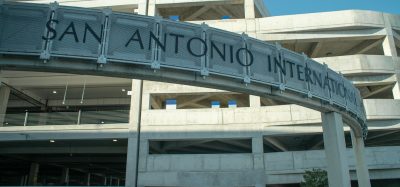Omicron’s impact on Europe’s tourism sector and the long-road to recovery
- Like
- Digg
- Del
- Tumblr
- VKontakte
- Buffer
- Love This
- Odnoklassniki
- Meneame
- Blogger
- Amazon
- Yahoo Mail
- Gmail
- AOL
- Newsvine
- HackerNews
- Evernote
- MySpace
- Mail.ru
- Viadeo
- Line
- Comments
- Yummly
- SMS
- Viber
- Telegram
- Subscribe
- Skype
- Facebook Messenger
- Kakao
- LiveJournal
- Yammer
- Edgar
- Fintel
- Mix
- Instapaper
- Copy Link
Posted: 9 February 2022 | International Airport Review | 2 comments
The latest Annual Meeting of the European Travel Commission allowed over 70 industry leaders to discuss the recent COVID-19 developments, including the Omicron variant, and Europe’s path to recovery.


Last week’s (31 January to 6 February 2022) Annual Meeting of the European Travel Commission (ETC) in Engelberg, Switzerland brought together the Board of Directors of national tourism authorities and their marketing and research teams from across Europe. Over 70 participants from throughout the continent convened at the meeting hosted by Switzerland Tourism.
In the wake of the Omicron variant, the gathering provided an exceptional platform for industry leaders to discuss the most recent COVID-19 developments and the path to recovery. Participants reviewed the latest data illustrating the impact of the Omicron variant on the winter travel season and put their heads together to tackle the challenges that lie ahead for the sector as it struggles to recover from the pandemic. It was noted during the meeting that one of the key challenges is the mass exodus of skilled workers from the hospitality sector over the past two years (2020 to 2022). As such, a priority for Europe’s tourism authorities in 2022 will be attracting talent back to the hospitality sector, ensuring it is an attractive employment option.
Luís Araújo, ETC’s President commented: “As we learn to live with COVID-19 and manage the health risks, it is imperative that European governments do everything in their power to revive travel. Alignment on travel rules across Europe is critical to boost consumer confidence and restart mobility. Clear communication and decisive action informed by data is also essential if pre-pandemic levels of European travel are to be achieved”.
Strategic agenda for Destination Europe towards 2030
Also top of the agenda was the sustainable and digital transition of tourism in Europe. This year’s (2022) meeting launched intensive work and laid the foundation to develop ETC Strategy 2030. The upcoming strategy will define how the organisation and its members can contribute to the green and digital transition of European tourism in the coming years and better support the sector’s recovery following the impacts of the pandemic.
This discussion was timely in light of the EU Transition Pathway for Tourism which was recently published. Understanding the crucial role of national tourism authorities in supporting the sector’s transformation and involving all relevant local stakeholders, ETC members agreed that the organisation should align its strategic priorities and actively contribute to the implementation of the Transition Pathway for Tourism.
Participants also acknowledged the emergency of climate change, and the need to align ETC’s actions over the next decade with the European Green Deal. There was an agreement that as Europe recovers from the pandemic there is an opportunity to build back stronger, ensuring that the region is driving green and sustainable tourism practices globally.
A clear consensus was also reached on the importance of timely research and new sustainable KPIs to measure the sector’s transition. During the meeting, the national tourism authorities in attendance got a sneak peek at ETC’s latest studies and upcoming reports, including its quarterly report ‘European Tourism Trends & Prospects’ due to be published next week (14 to 20 February 2022). This report analyses trends and prospects for Q4/2021 and highlights how cross-border travel recovery stalled during winter months following the re-imposition of travel restrictions and lockdown measures across Europe. The report also predicts trends for the resumption of intra-European and long-haul travel.
ETC‘s Associate Members and partners representing the private industry such as CrowdRiff, the European Tourism Association (ETOA), Euronews, MINDHAUS, MMGY Global and the World Travel & Tourism Council (WTTC) were also in attendance, providing informative presentations to participants.
The next meeting of Europe’s national tourism organisations will take place on 18 to 20 May 2022 in Ljubljana, Slovenia. Hosted by the Slovenian Tourist Board, the event will focus on sustainable tourism practices and gender equality in tourism.
Related topics
Airside operations, COVID-19, Digital transformation, Passenger experience and seamless travel, Sustainability, Terminal operations, Tourism
Related organisations
CrowdRiff, Euronews, European Tourism Association (ETOA), MINDHAUS, MMGY Global and the World Travel & Tourism Council (WTTC)



















I read your article. I agree with many. Can I post this article on my site?
https://welcomeukraine.today/
I will be very happy to share this with my subscribers.
Hi Pavel, thank you for your comment, you can of course include a link to our content on your site but you cannot post this article on your site without following the steps in this link: https://www.internationalairportreview.com/permission-to-reuse-our-content/